Meal Replacement vs Protein Shake: Which One to Pick?
Author:
Unlock your full potential by engaging with our experts and community! Have questions about your fitness journey or looking for expert advice on weightlifting techniques? Don’t hesitate — leave a comment below and Oleksandr Maksymenko will provide a personalized answer and insights to help you reach your goals.
Torokhtiy is reader-supported. Some links are affiliate links, and we may earn a commission at no extra cost to you. See our disclosure page for details.
Many people do not understand the difference between meal replacement vs protein shake. From this article you will learn what meal replacements are made of and what goals each of these products (replacements and protein shakes) are suitable for.
Key difference between meal replacement and protein shake – composition of macro- and micronutrients. The first contains more carbohydrates and is enriched with vitamins and minerals. The second is a concentrated source of high-quality protein. In the battle between meal replacement vs protein shake the latter wins in terms of advantages/disadvantages.
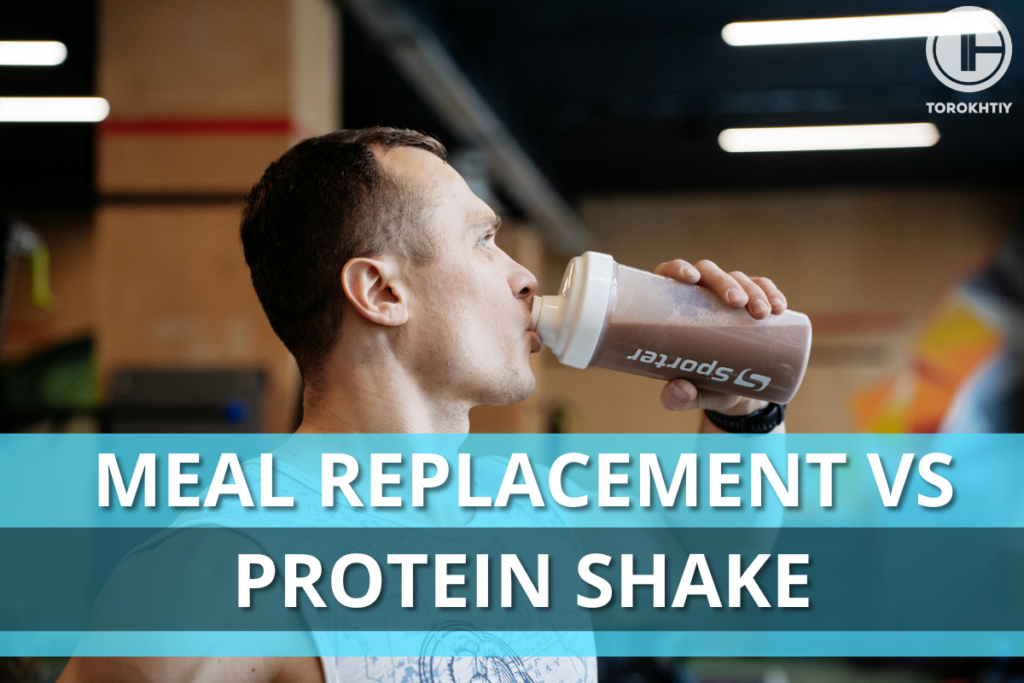
What is Meal Replacement?
The very name of these products answers the question of what they are. These portion-controlled products supplemented with vitamins and minerals are designed to replace one to two meals per day, with one or two remaining meals using conventional, whole foods.
Historically, these products were created to fight overweight and obesity. Usually, meal replacements are used in low-calorie meal plans of 1000-1600 kcal. In this case, they can replace one or two meals.
Also, these products can be used as part of a so-called very low-calorie diet (or very-low-energy diet, also known as VLED), the calorie content of which can be as low as 450-800 kcal. In this case, meal replacements replace all meals. However, this approach can only be used under medical supervision and only on a short-term basis.
In general, meal replacement shakes can be used as part of a low-calorie diet in combination with conventional, whole foods. The effectiveness of these products for weight loss has been studied for about 20 years.
Since the key goal of meal replacements is to reduce the calorie density of meals, one portion contains 130-230 calories. The product usually contains a serving of protein and carbohydrates, and must be enriched with vitamins and minerals to be considered a balanced and suitable replacement for a regular meal.
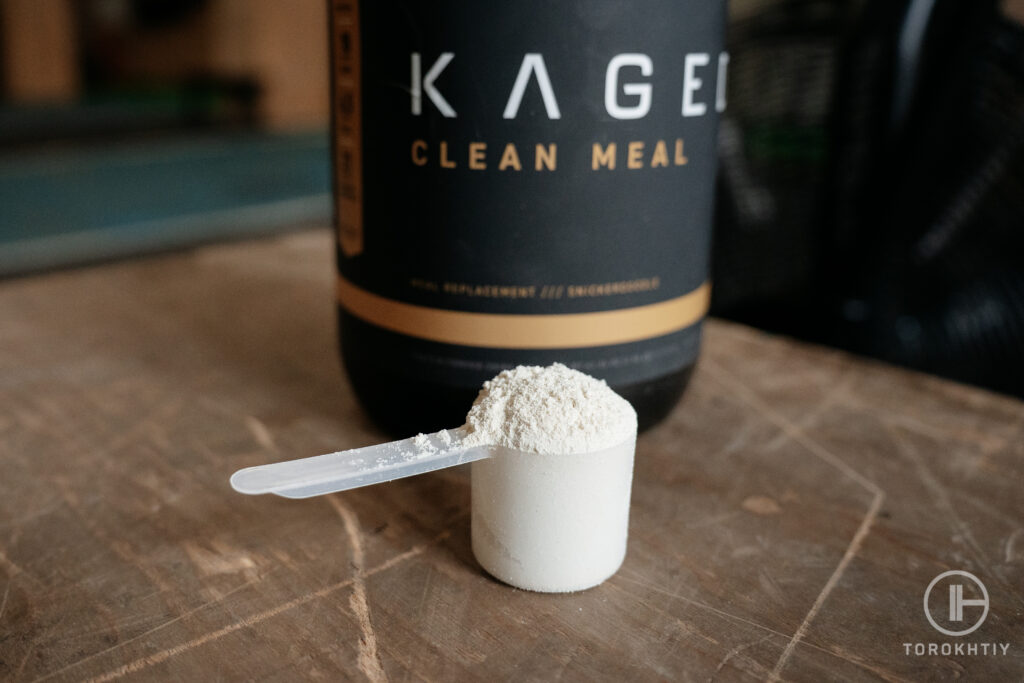
What is Protein Shake?
The difference between meal replacement and protein shake is that these products are created and used for different purposes. While meal replacements can replace 1 or more meals, protein shakes do not replace, but only supplement them. Look at them as an additional source of protein in our overall grocery basket.
Protein shake is a concentrated source of protein. Depending on the specific product, it can also contain from zero to several grams of carbohydrates. The goal of a protein shake is to facilitate the process of consuming the total daily protein requirement in a convenient and tasty way. Just open the tub, measure out one scoop of protein powder and mix it into water or milk.
The key difference between meal replacement and protein shake is the composition and amount of macro- and micronutrients. With some exceptions, usually protein powders are not enriched with vitamins and minerals, or are enriched only with some individual micronutrients, for example, iron.
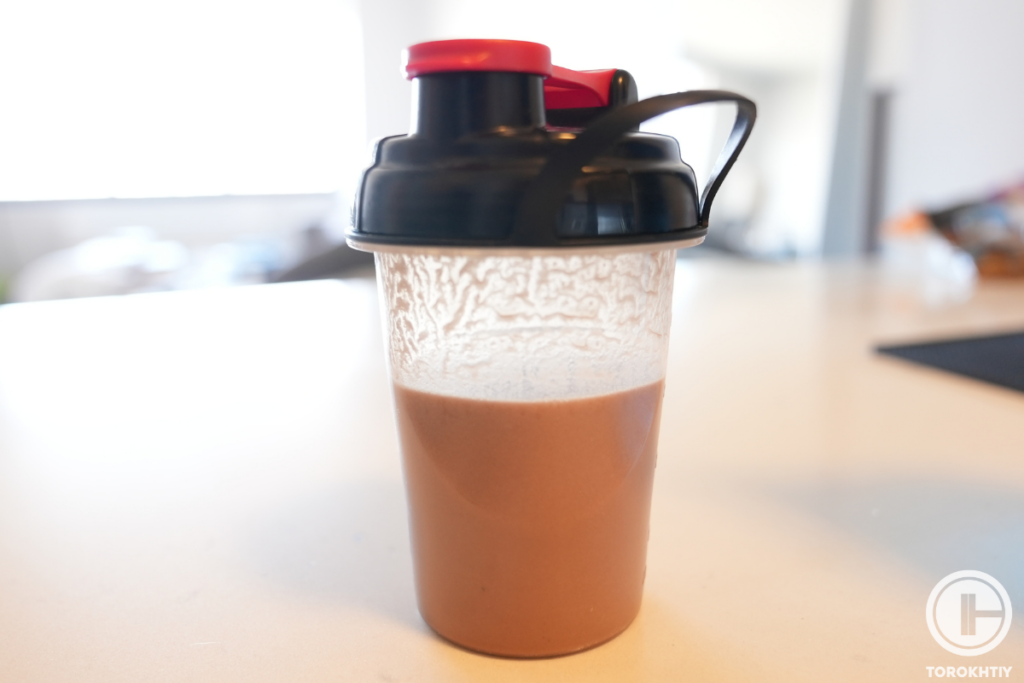
On the other hand, meal replacements should be enriched with a large concentration of vitamins and minerals. For these reasons, we cannot consider whey protein as a meal replacement. Also, meal replacements usually contain more fat per serving than a serving of a protein powder.
Therefore, if you asked the question is protein shake a meal replacement, the answer is no. These are different products, although they have a similar amount of protein per serving.
To summarize, a protein shake is a way to get an extra serving of protein. Meal replacements are a way to replace a meal with a low-calorie portion of a mixture that, in addition to protein, fats, and carbohydrates, also contains a large portion of vitamins and minerals.
Meal Replacement vs Protein Shake
Now let’s take a closer look at these 2 types of products to help you decide which type of supplement is right for you.
1. Processing
As I already said, protein powders are a concentrated source of protein. Depending on the type (whey, casein, soy, pea), their processing methods and overall quality differ.
For example, whey protein is a byproduct of cheese production. In liquid form, milk consists of approximately 3% proteins, of which 20% is whey, and 80% is casein. These two types of proteins can be extracted from milk and turned into a concentrated powder form.
Milk is pasteurized, enzymes and coagulants are added. Then proteins are divided into 2 fractions – whey and casein. They are dried and packaged in tubs. This is how we get whey protein.

Meal replacements also contain protein. For example, the composition may include whey, pea, a mixture of pea and rice protein, or other sources. In addition to protein, these products contain a small or significant portion of carbohydrates.
For example, it can be oat flour, a blend of amaranth and quinoa, a blend of dried berries or fruits, coconut sugar, and so on. Different brands use different sources and quantities of carbohydrate in their products.
2. Average Protein/Carbs/Fat Content
Usually, meal replacement shakes vs protein shakes have a similar amount of protein, but different amounts of carbohydrates and fat.
A standard serving of whey protein concentrate contains approximately 24-25 g of protein, 2-3 g of carbohydrates and 1-2 g of fat. The average calorie content of a serving of protein powder is 120 calories.
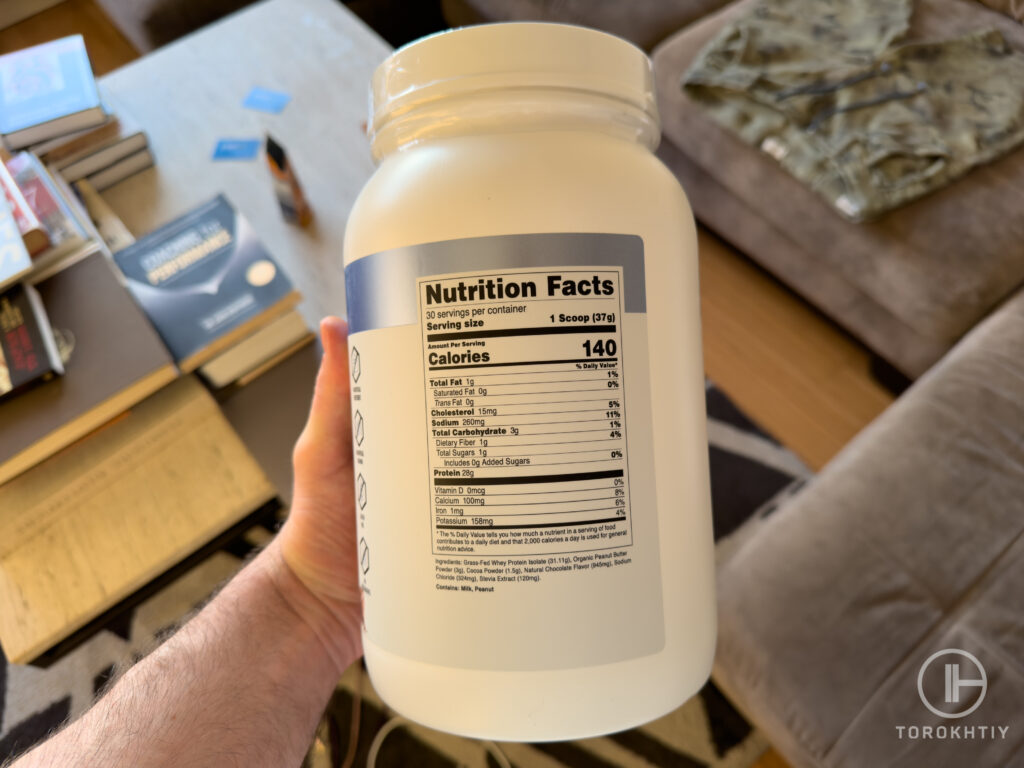
However, if you compare protein powder vs meal replacement, the latter has a much larger range of macronutrients breakdown per serving. Generally, the amount of protein is 20 grams per serving.
But depending on the specific brand and specific product, the quantity of carbohydrates per serving can be from 5 to 25 grams or more, fats – from 3 to 6 grams or more. Hence such a wide range of calories – from 130 kcal to 230 kcal per serving.
3. Price Range
In the pound for pound protein shake vs meal replacement, the first option wins. A serving of whey protein (concentrate) costs an average of $1.25-1.35, while a serving of a meal replacement costs about $1.5-2. However, it is worth considering that along with the higher cost you also get a large amount of vitamins and minerals.
4. Added Sugar Content and Flavors
To finish our comparative analysis and conclude which is better for you: protein shake or meal replacement, consider such an important factor as the amount of added sugar.
Many meal replacements from different brands contain 1-2 grams of added sugar, which is not a big problem. However, it is worth considering that according to the recommendations of the Centers for Disease Control and Prevention (CDC), added sugar should be less than 10% of the total calorie content of our overall diet. Therefore, even these few grams should be considered in the whole picture.
On the other hand, you can easily find many protein powder options that do not contain a single gram of added sugar. For example, the protein we recommend in this review has 0g of added sugar.
Meal Replacement vs Protein Shake: Summary
There are many factors to consider when making the final comparison between these products. There is something in common and something very different between them. It is also worth considering their price. In order for you to make the right choice, I will list the strengths and weaknesses of each product.
1. Pros/Cons of Meal Replacement
Positives:
Could be better:
2. Pros/Cons of Protein Shake
Positives:
Could be better:
As you can see, in the battle between protein powder vs meal replacement, each product has its advantages and disadvantages. However, this does not mean that you should completely abandon one of them. Below I will tell you what specific goals these products can be used for.
Meal Replacement vs Protein Shake: When to Use Each?
1. Meal Replacement is Good:
- If you want to reduce the calorie content of your diet and you need portion control without having to weigh your food,
- If you want to save cooking time by replacing one meal,
- If you need to lose weight quickly and you want to replace 2 meals with a meal replacement (do it only under the supervision of a doctor).
2. Protein Shake is Great:
- If you need to increase the total amount of protein in your diet without adding a lot of carbohydrates and calories,
- If you want to save time on the cooking of protein products by replacing a serving of fish or meat with a protein shake,
- If you need a convenient snack to replace sweets – at any time of the day,
- If you need a quick and easily digestible pre-workout snack.
Products We Recommend
Perfect Meal by Orgain
- Protein: 25g
- Total Fat: 8g
- Total Carbohydrate: 30g
- Serving Size: 70g (2 scoops)
- Servings per Container: 14
- Flavor: Chocolate, Vanilla
- Price per Serving: ~$3.57
- Company Founded: 2009
- Recommended By Athletes: Alex Morgan, Etienne Maurice, Myranda Hausheer
Have you already chosen your winner in the protein shake vs meal replacement battle? I have 2 great choices for the role of each of them.
If you choose a meal replacement, I recommend Perfect Meal by Orgain. This is a great vegan-based product that contains a blend of pea and rice proteins that complement each other with individual amino acids and thus improve the overall amino acid composition of the product.
Note that this product contains 25 grams of protein per serving and is also one of the best fiber products on the market per serving – a whopping 10 grams! And of course, Perfect Meal is enriched with vitamins and some minerals. A great option for vegans!
Promix Whey Protein
- Suitable for vegans: No
- Flavors: Unflavored, Raw Chocolate, Vanilla, Peanut Butter, Chocolate Peanut Butter
- Protein Source: Whey protein concentrate
- Protein: 25g
- Carbohydrates: 3g
- Fat: 1.5g
- Sugar: 1g
- Serving Size: 31g
- Price per serving: ~$0.93
- Protein-by-weight ratio (%): 80
- Company Founded: 2011
- Recommended By Athletes: Hollis Tuttle, Shaun O’Leary, Vanessa McCoy-Nelson
For a protein shake, I suggest paying attention to the unflavored version of Promix Whey Protein. One serving of this product contains 25 grams of whey protein concentrate, with no added sugar, sweeteners or other ingredients. Only 1.5 grams of fat, 3 grams of carbohydrates and 120 calories per serving. A simple product worth every cent spent
FAQ
Are protein shakes good meal replacements?
Although protein shakes are perfectly suited to the role of a snack or as a supplement to your overall diet, they cannot be considered an equivalent alternative to meal replacements. After all, they usually do not contain vitamins and minerals that are specially added to meal replacements.
Is protein shake or meal replacement better for weight loss?
Meal replacements were created for people who are struggling with overweight and obesity. Their use is considered safe and effective for weight loss.
However, a protein shake is also a great weight loss product. It is a concentrated source of protein, which plays a very important role in maintaining a feeling of satiety, and also in preserving muscle tissue. And all this in a 120 kcal serving.
Conclusion
Each product can have a place in your diet. However, considering the advantages and disadvantages, in the battle of meal replacement shakes vs protein shakes, I prefer the second option. If you need to increase the amount of protein in your diet and achieve better results in the context of improving body composition – this is your choice!
Please, tell us in the comments if you use a protein shake or meal replacement in your diet? What are your impressions?
Also Read:
- Is Sugar Free Protein Powder Better
- Whey Protein Concentrate vs Isolate
- How Much Is A Scoop Of Protein Powder
- Is Protein Powder Good For Teens
- Oats In Protein Shake
- How Long Do Protein Shakes Last
- Whey Protein vs Isolate
Referenses:
- The Effect of Meal Replacement on Weight Loss According to Calorie-Restriction Type and Proportion of Energy Intake: A Systematic Review and Meta-Analysis of Randomized Controlled Trials // Jandonline: https://www.jandonline.org/article/S2212-2672(21)00302-6/pdf
- Attitudes and Approaches to Use of Meal Replacement Products among Healthcare Professionals in Management of Excess Weight // National Library of Medicine: https://www.ncbi.nlm.nih.gov/pmc/articles/PMC7551264/
- Photos made by Torokhtiy Media Team.
Why Trust Us?
With over 20 years in Olympic weightlifting, strength training, nutrition coaching, and general fitness our team does its best to provide the audience with ultimate support and meet the needs and requirements of advanced athletes and professional lifters, as well as people who strive to open new opportunities and develop their physical capabilities with us.
By trusting the recommendations of our certified experts in coaching, nutrition, and sports training programming, as well as scientific consultants, and physiotherapists, we provide you with thorough, well-considered, and scientifically proven content. All the information given in the articles concerning workout programming, separate exercises, and athletic performance, in general, is based on verified data.
The product testing process is described in more detail here.
Author: Oleksandr Maksymenko
Certified Sports Nutritionist,
MSc Sports Dietetics
Specializing in: Weight management, Fitness / Sports nutrition
Oleksandr is a professional fitness nutritionist certified by the Fitness Professional Association (FPA). He follows the principles of evidence-based dietetics and fosters a healthy relationship with food in his clients, ensuring there are no strict prohibitions on their favorite foods or frequent lapses. His primary goal is not only to achieve results for you but also to sustain them over the long term, all while enjoying tasty and delicious food.



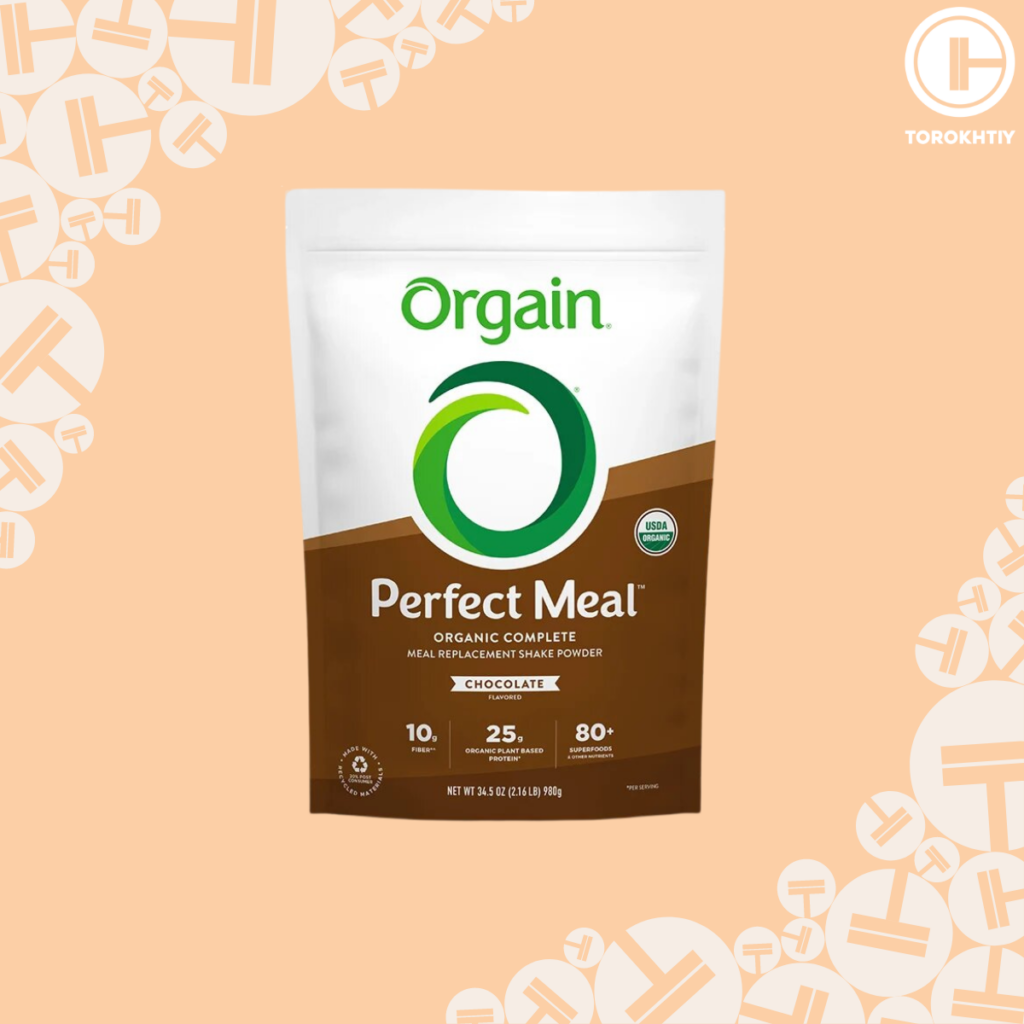
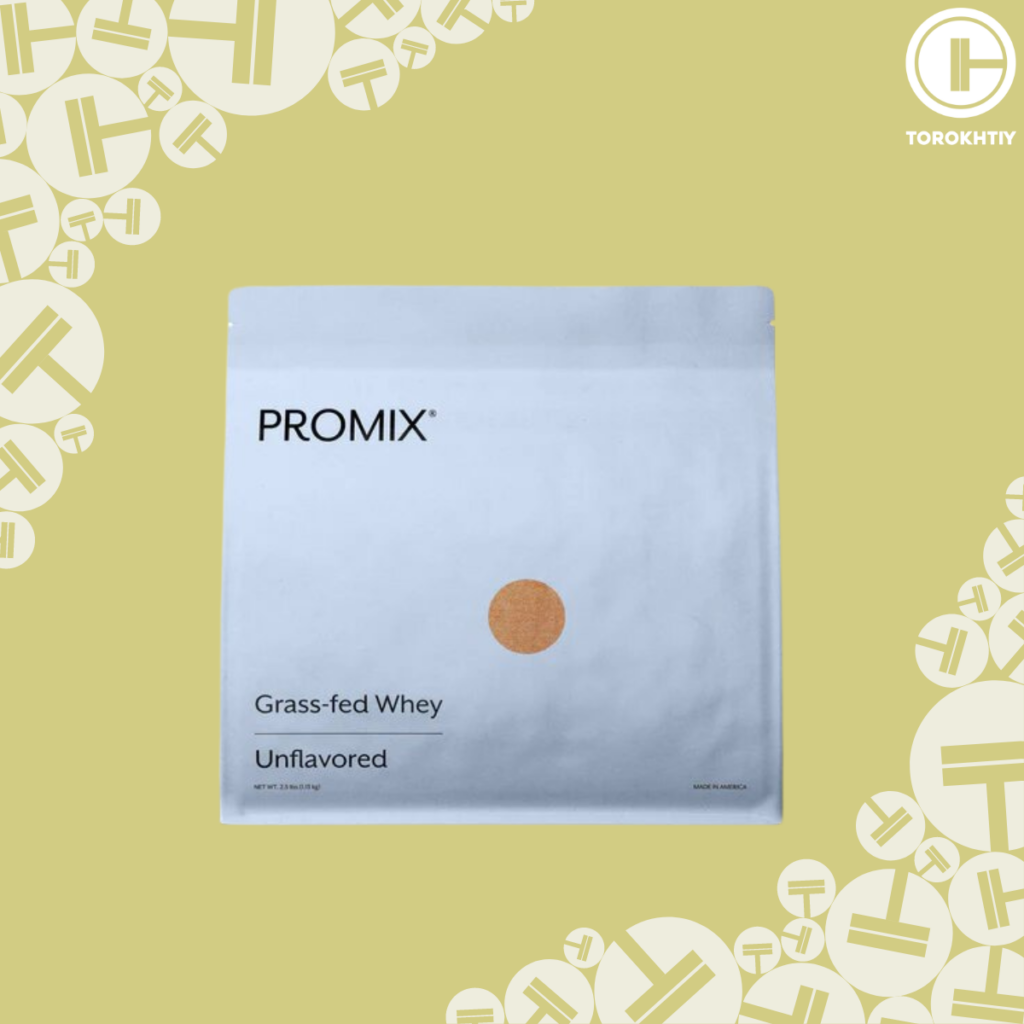
Still have questions after reading our article? Unlock your full potential by engaging with our experts and community! Don’t hesitate — leave a comment below and Oleksandr Maksymenko will provide a personalized answer and insights to help you reach your goals.